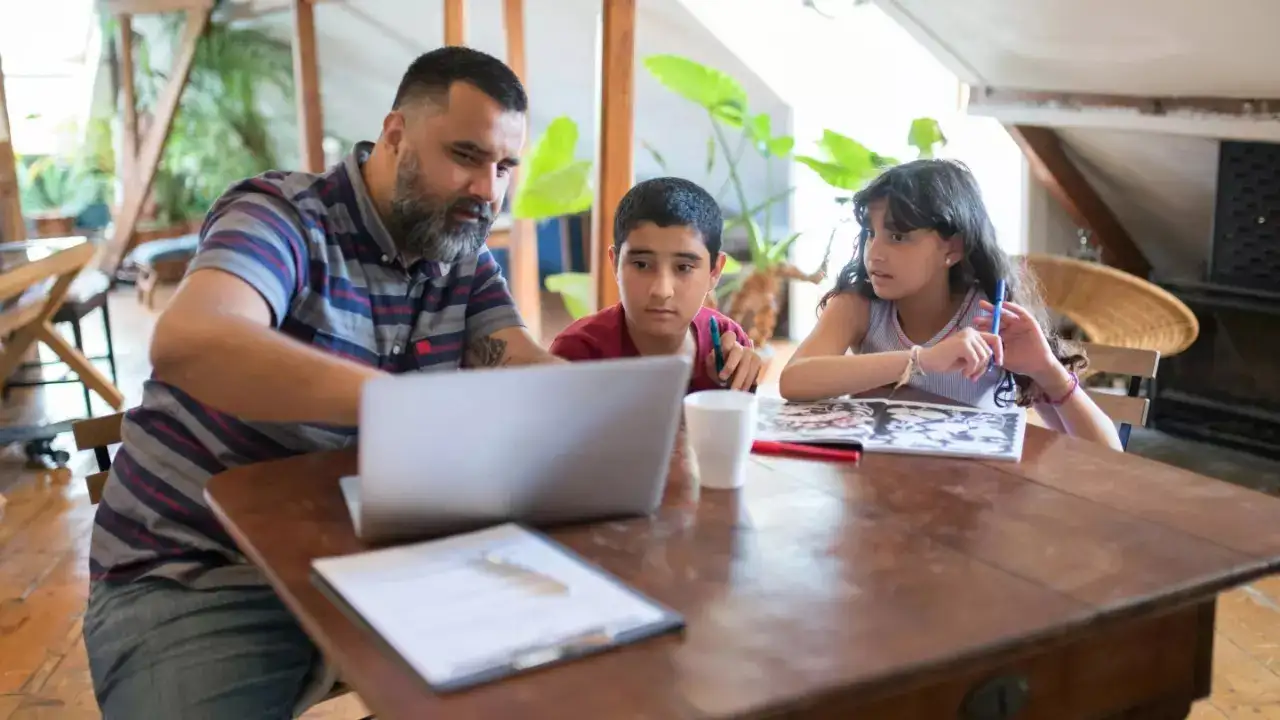Copyright indiatimes

AI is quickly changing what “work” looks like where employers no longer hire only for memorised facts or narrow technical chops. Across universities, banks and asset managers, recruiters now prize people who can learn, adapt, collaborate and make wise judgments with AI as a tool. Parents who help their teens practice the right skills at home give them a real head start.Reports from the World Economic Forum, Pew Research, McKinsey and SEL evidence converge on one point that the credential alone won’t guarantee work success in an AI-first world. The habits of learning, emotional skill and applied judgment will hence, parents who embed these habits of curiosity, empathy, adaptability, clear communication and ethical judgement now, will give their teens the best protection against automation and the best launchpad for meaningful and resilient careers. Teach your teens digital fluency and AI literacy: How to use, not fear, the toolsShow teens how to use AI responsibly (prompting, fact-checking outputs, basic data viz) rather than banning it. Hands-on practice beats abstract warnings. A recent 2025 Future of Jobs Report by World Economic Forum revealed that overall, employers expect 39% of workers’ core skills to change by 2030 where AI and big data will be among the skills of increasing use. Employers expect significant skill disruption from AI and name AI/data skills among those rising in importance — so comfort with these tools is now core employability.In an interview with the Times of India, Nikhil Barshikar, Founder and CEO at Imarticus Learning and Chairman, Advisory Council at Imarticus School of Finance and Business, shared, "The graduates of 2026 will step into a workplace that looks nothing like what existed even three years ago. The biggest shift recruiters are driving is not just about what candidates know, but how they think, learn and adapt. Recruiters today are looking for three things above all else: applied intelligence, digital fluency and professional agility. Applied intelligence means moving beyond textbook knowledge to solving unstructured, real-world problems. Digital fluency now defines employability, with comfort in tools like data visualisation, AI-driven analytics, and automation becoming essential. Agility, the ability to unlearn and relearn quickly, is what will separate those who grow in their roles from those who get left behind."Teach your teens the art of communication and storytelling with data: Write clearly; sell the ideaAsk your teen to present a one-page family budget, explain research to relatives or make a short data poster to practice turning numbers into persuasive stories. As per a 2024 study by Pew Research Center, written and spoken communication skills and critical thinking skills are rated extremely or very important by around 85% of workers. Pew’s 2024 national polling shows that communication and critical thinking are among the top skills that workers and employers consider essential.Encourage learning sprints or short projects to pick up a new tool or language. Reward the process of unlearning (e.g., revision vs perfection). A 2021 education synthesis by McKinsey & Company found that communication and mental flexibility are essential. McKinsey and partners map “mental flexibility” and continuous learning as central to future employability where employers prize willingness and ability to reskill.According to the India Skills Report 2024, only around 51 percent of graduates are currently employable and recruiters indicate that less than one in ten is ready for sector-specific roles. Barshikar highlighted, "Recruiters increasingly value proof of work over paper credentials, with internships, simulations and live projects are becoming decisive factors in hiring. Global certifications such as CFA, ACCA, US CPA, FRM and US CMA are also gaining importance because they combine academic rigour with applied competence. These qualifications, along with certifications in analytics, AI, or fintech, signal to employers that a candidate is industry-ready and globally aligned."He asserted that equally important are communication and storytelling skills, the ability to write clearly, present data persuasively and articulate ideas that move decisions. Barshikar explained, "In an era where professionals must influence through clarity as much as competence, those who can tell the story behind the numbers will lead. The employability premium now lies in the blend combining academic foundations with applied skills, theoretical learning with real-world exposure, and knowledge with adaptability. For India’s youth, this is not a bonus; it is survival in an AI-first economy. By 2026 and beyond, the most sought-after graduates will not be those who can recite frameworks but those who can interpret data, connect global market dynamics, and lead with empathy in a world defined by constant change."Teach teens critical thinking and information literacy: Tell fact from AI fictionPractice source-checking together: verify a viral claim, compare two news pieces or evaluate an AI output for bias and factuality. World Economic Forum stories on skills establish that leadership and social influence and curiosity and lifelong learning are among other skills expected to see growing demand. WEF emphasizes critical/analytical thinking and lifelong learning as top workplace skills as both require robust information literacy in an AI era.Let your teen solve open-ended problems (fix a budget for a trip, plan a joint project, troubleshoot a family tech issue) as these exercises build the ability to tackle messy, interdisciplinary problems with human tradeoffs and work tasks that AI cannot fully automate. According to a 2023 Future of Jobs Report by World Economic Forum, analytical thinking and creative thinking will be top in-demand skills by 2027. WEF’s employer survey identified analytical/problem-solving and creative thinking as the highest-value skills as AI automates routine work.Bringing her expertise to the same and elaborating upon what recruiters will expect from graduates in 2026 and beyond, Eela Dubey, Founder and CEO of EduFund, revealed, "Across universities, asset managers and banks, we’re seeing one clear shift recruiters are redefining what ‘employable’ means in the age of AI. They’re not just hiring for technical know-how but for adaptability, curiosity and judgment. As AI takes over routine work, employers are looking for graduates who can use technology responsibly and think across disciplines, a finance student who understands data science, or an engineer who can communicate and lead." She opined that by 2026, agility and human intelligence will matter more than the degree itself hence, more families should choose programs that blend analytics with creativity and global exposure.Discover what drives your weight management journey. Take the survey Now.Get the latest lifestyle updates on Times of India, along with Happy Diwali wishes, messages and quotes !



